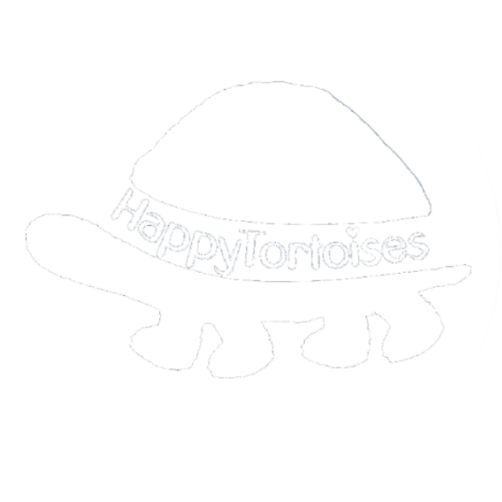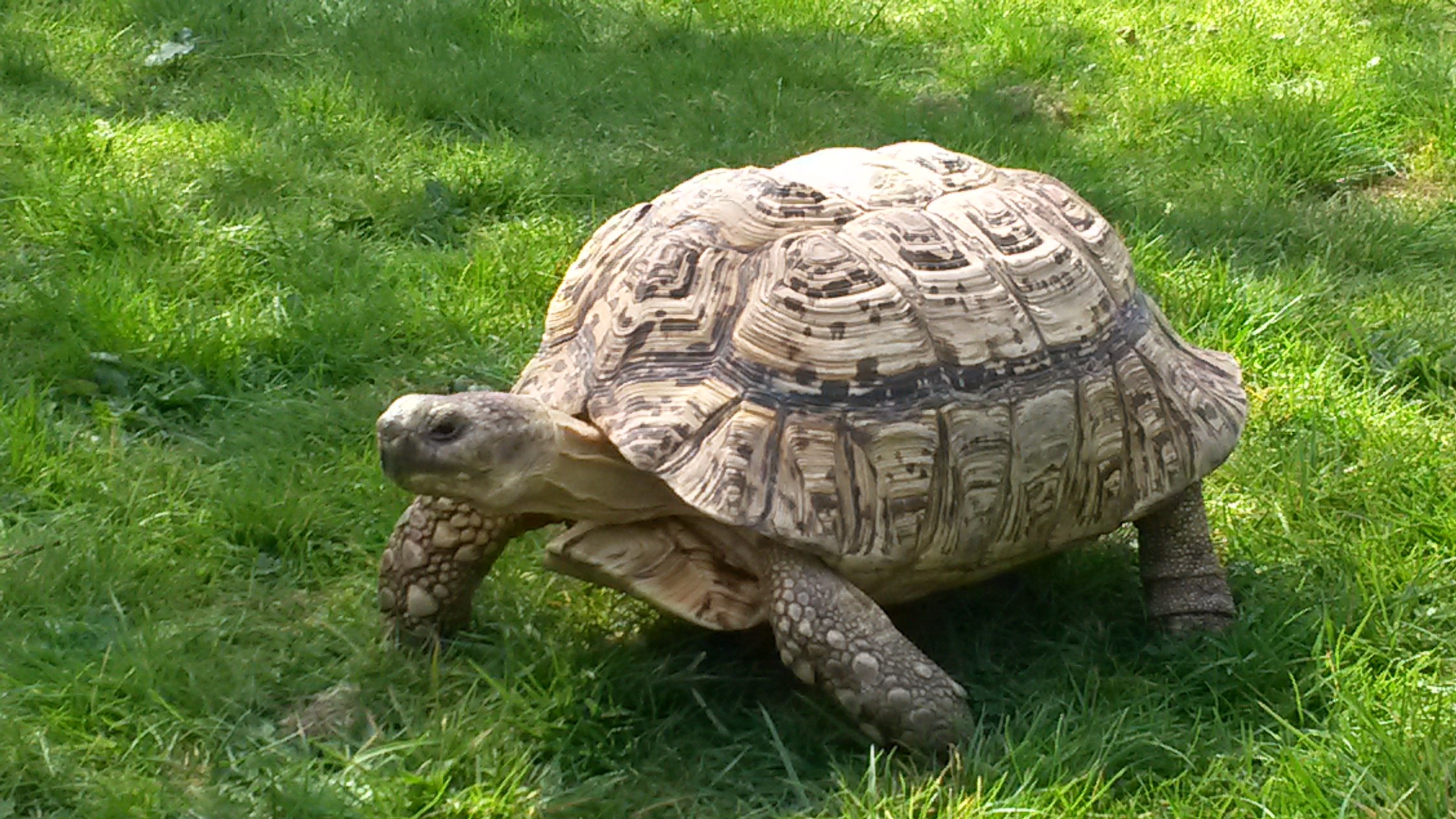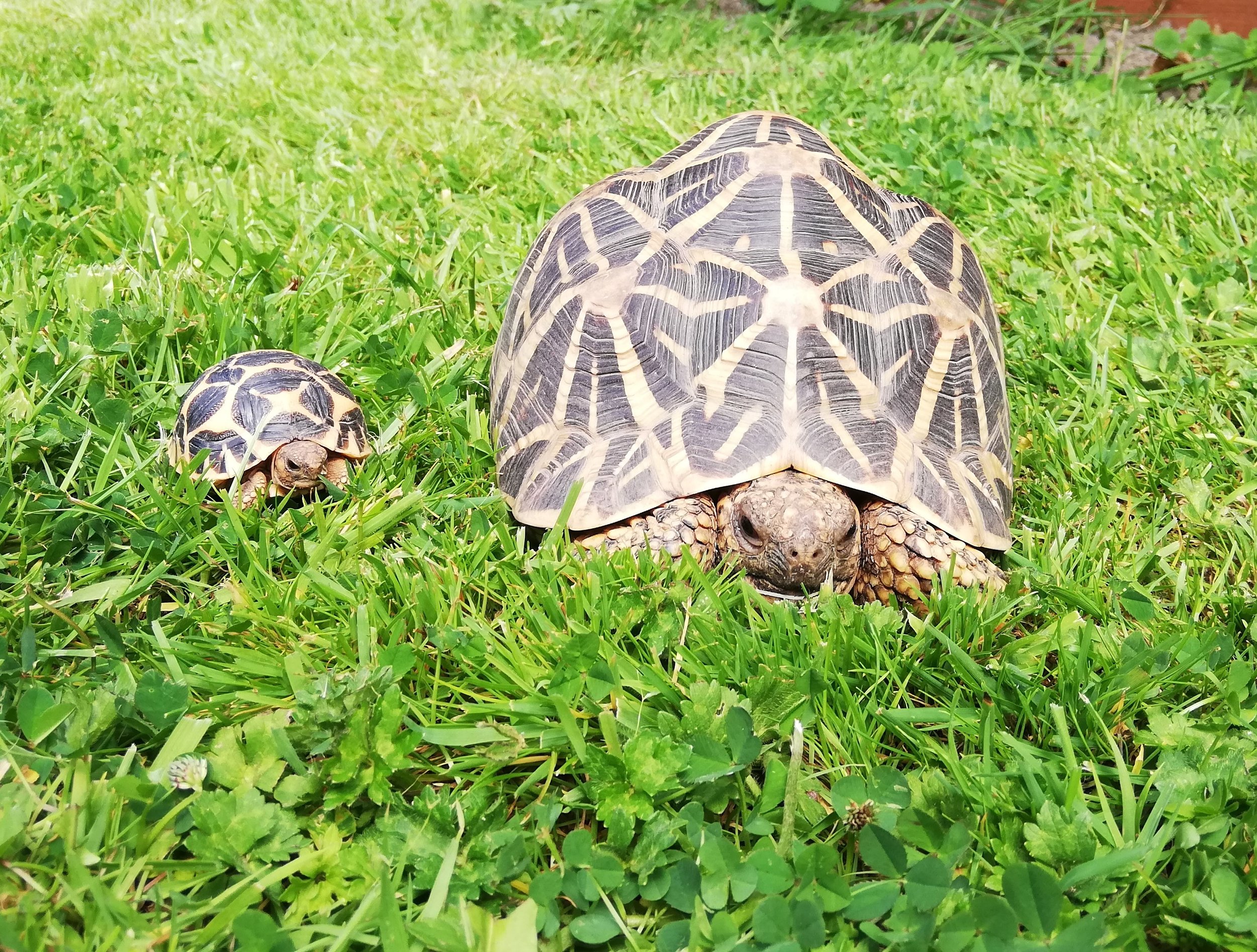Tortoise Breeds
There are literally hundreds of different species and sub-species of tortoises. Some breeds are more common than others, some are endangered, some are critically endangered and some are even extinct.
The more common available captive-bred tortoises found in the UK are:
Horsfield (also known as Russian) tortoise (Testudo horsfieldi)
Mediterranean Spur Thighed (also known as Greek) tortoise (Testudo graeca, Iberia)
Hermann’s Tortoise (Testudo hermanni)
and Marginated Tortoise (Testudo marginata)
Other captive-bred tortoises that are also available but not as common are the:
Leopard Tortoise (Geochelone Pardalis or Stigmochelys pardalis)
Redfoot Tortoise (Geochelone carbonaria)
Indian Star Tortoise (Geochelone elagans)
African Spur-thighed (also known as Sulcata) tortoise (Geochelone sulcata)
Radiated tortoise (Geochelone radiata)
Pancake tortoise (Malacochersus tornieri)
Burmese star tortoise (Geochelone platynota)
and Egyptian tortoise (Testudo kleinmanni)
High level overview of more common breed differences
NB: Adult tortoise sizes vary in some species between males and females, as well as there being unusally large or unusually small tortoises recorded for each species, so some species are more difficult to provide average sizes than others! The above tables is to be used as a rough guide on adult tortoise sizing with the understanding that there will be variations or exceptions with some species.
Which tortoise breeds hibernate?
Some breeds of tortoise hibernate, others do not. See table above for the more commonly kept captive-bred tortoises in the UK for hibernation details.
Which breeds of tortoise require licences and microchipping?
Some of the above breeds require licences and microchipping, please see Tortoise Licensing and Microchipping pages for more details.
Are there different care requirements for the different tortoise breeds?
Each breed of tortoise has different care, food, humidity, temperature and habitat requirements, so please do your research into the breed of tortoise you want to own so you can give it a happy, healthy and long life. They make great pets, in my opinion, providing their basic needs are met, the correct care and good husbandry is provided and their home is safe and stress-free.
Do tortoises have different personalities?
Generally tortoises are shy, docile and quiet reptiles. They do have different personalities (even within the same species of tortoise, for example some of my leopards are very outgoing and friendly, whereas others are shy and scare easily!)
Generally, tortoises find change stressful - e.g. a new home, moving items around in their enclosure, etc. It is best to keep change to a minimum to reduce stress.
Some tortoises can be aggressive towards each other (e.g. males towards other males if competing for a female, or some species ram/bite females during mating to immobilise the female, so is best to avoid this situation by having the recommended male:female ratio in group of tortoises or being prepared to accommodate them in different enclosures if required).
Tortoise Breeds available at HappyTortoises
There are many different tortoise breeds each with their own unique requirements for food, housing, enclosure size, humidity requirements and hibernation.
Please be sure to read the "basic information" below for each breed of tortoise that we sell, as well as the care sheets before purchasing so you know that the breed of tortoise is right for you and your family and you can continue to offer your tortoise the best care throughout their lifetime.
Leopard Tortoises
classed as "Large" tortoise (my adults are >1ft long)
DOES NOT hibernate
requires heat/light all year around
babies require open-topped tortoise table (no vivariums)
Indian Star Tortoises
classed as "Medium" tortoise (my adults are 5-9" long)
DOES NOT hibernate
requires heat/light all year around
babies require open-topped tortoise table (no vivariums)
Mediterranean Spur-thigh Tortoises “Greek”
classed as "Medium" tortoise (my adults are 6-8" long)
DOES hibernate
is a hardier breed and more suited to our UK weather
babies require open-topped tortoise table (no vivariums)




